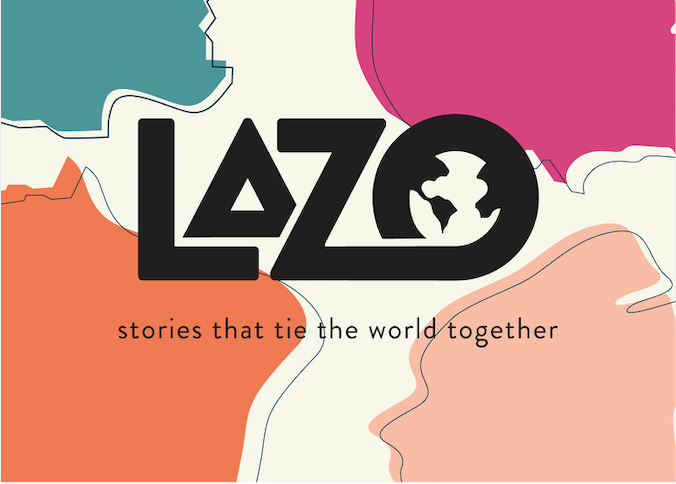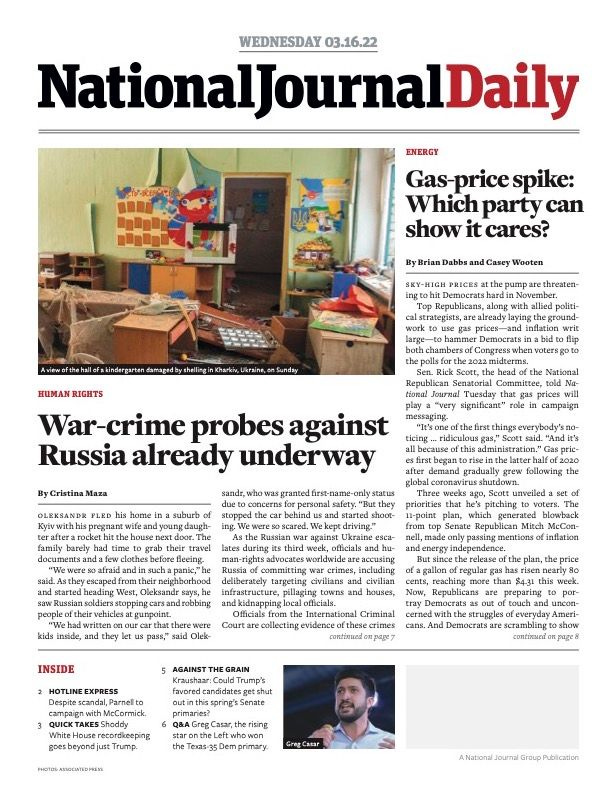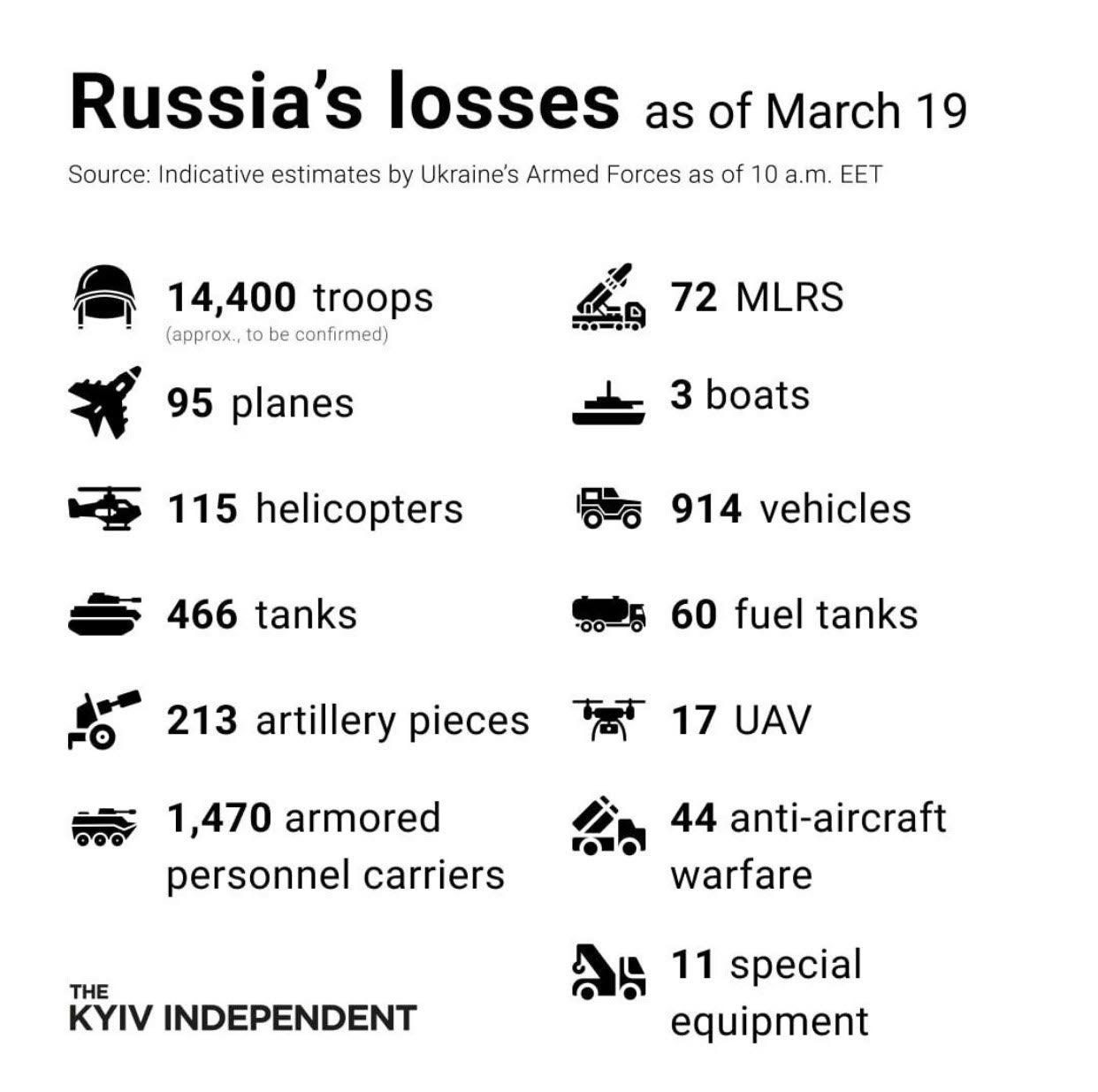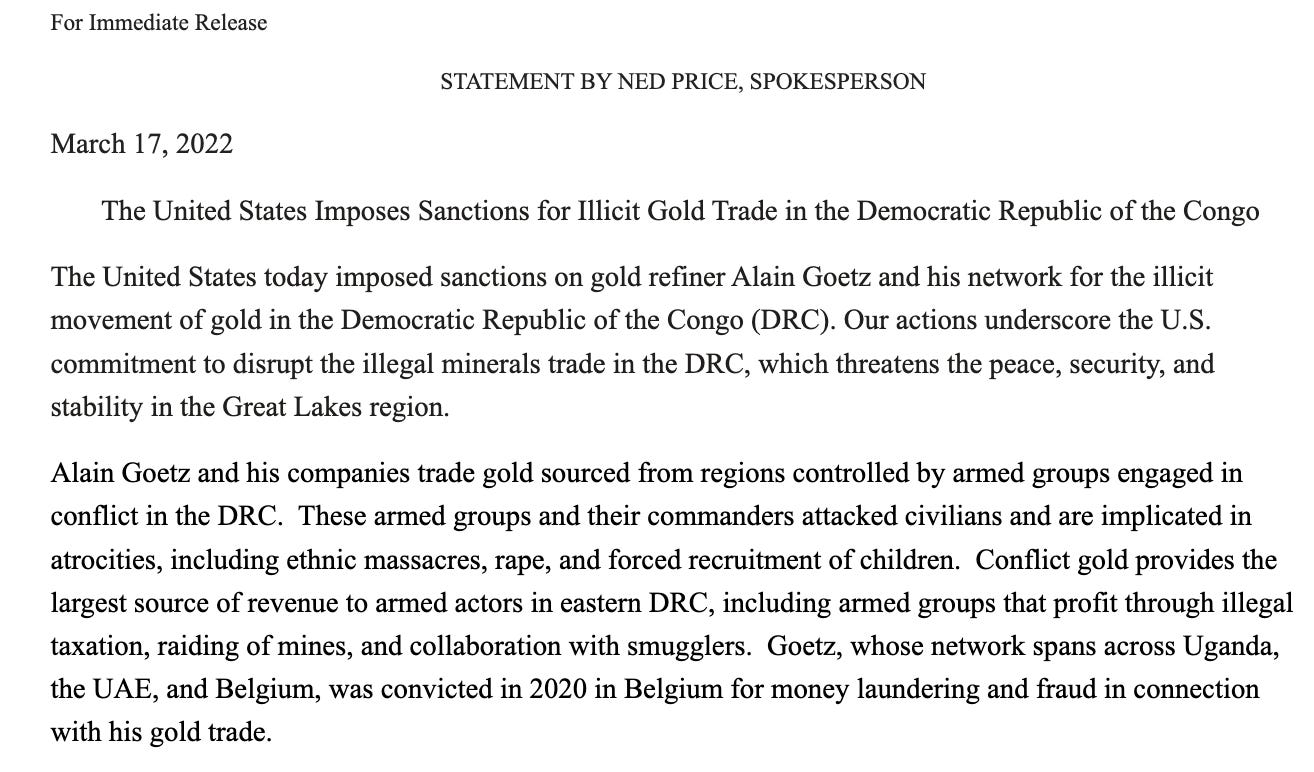Educate your people about Ukraine.
I know that most people reading this newsletter are highly informed. But lately, I've been a little surprised by how little people in my life in the U.S., even close friends, know about the origins of the war in Ukraine and what Russia wants in the country.
Someone in a bar recently said they thought the conflict was about Russia's ability to ship gas to Europe, at which point I had to explain the history of the NordStream 2 pipeline and why the war was actually going to impede Russia's ability to sell its resources internationally (I am fun on the weekends, I swear!).
Last night I rewatched Winter on Fire on Netflix and had to explain to the person with me all about Ukraine's history starting from the Orange Revolution in 2004.
I guess it's naive of me to think that everyone and their mother was obsessing over the Euromaidan in 2014 as much as I was, or as much as my friends in Tbilisi, Georgia, where I lived at the time, were obsessing over it. I suppose it all feels different when it's a place and region that you're deeply connected to and a history you've been watching and reading about for almost two decades.
The truth is that, despite being hyper-aware that my interests are a little odd by American standards, sometimes I forget that everyone isn't interested in the things I care about. That is obviously my bad.
But my point, I suppose, is that there is a lot of bad information out there, and it's easy to check out and stop caring about a conflict when you don't know what is at stake, not just for Ukraine but for the world.
Just a few years ago, I heard smart people in Washinton D.C. dismiss the debate over whether to provide Ukraine with javelins as a trivial foreign policy discussion for "the Blob," instead of a crucial conversation about how best to push back on a tyrant trying to remake international rules and norms.
So this weekend, I'm asking you to educate those close to you about Ukraine. Because I know the people who read this newsletter can probably do that and do it well. If you need help, here are a few explainers.
VOX.com, February 23: The increasingly complicated Russia-Ukraine crisis, explained.
CNN, February 28: What does Putin want in Ukraine? The conflict explained
The New York Times, March 11: The Roots of the Ukraine War: How the Crisis Developed.
If you don't find these explainers are enough, please just let me know and I can put together a LAZO LETTERS explainer sometime in the next few weeks.
Alternatively, if you have questions about Ukraine, please feel free to email me at c.maza@protonmail.com (admittedly, it sometimes takes me a while to check that email address), and I will do my best to answer your questions. Maybe I will post the responses here later so others can read them.
For those of you who want to watch it, Netflix is airing Ukrainian President Zelensky's popular television show Servant of the People in the U.S.
If you like this newsletter, please share it with others or upgrade to a premium subscription for $2 a month if you can afford it.
Upgrade to a premium subscription by Clicking Here
The Washington Post has information about how you can help Ukrainians.
What I'm writing:
• During war, Ukraine's parliamentarians are showing up to vote. Here's a look at how Ukraine's leaders continue to govern, including changing tax laws and approving more funding for the military [This article is unlocked].
• Investigations into suspected war crimes in Ukraine are already underway. I wrote about the evidence being collected and what it would take to secure justice.
• White House officials gave a closed briefing to members of the House Committee on Foreign Affairs about efforts to renew the Iran nuclear deal. But some lawmakers are unsatisfied with the information they are getting about the terms of the agreement that's about to be reached.
What I'm reading:
• This Associated Press report from Mariupol is devastating. The bodies of the children all lie here, dumped into this narrow trench hastily dug into the frozen earth of Mariupol to the constant drumbeat of shelling, the story begins.
• Chris Miller has a heartbreaking report for Buzzfeed about a Ukrainian mother who buried both of her sons six days apart.
• Russia bombed a theater in Mariupol where hundreds of displaced families sought refuge, the Washington Post reports. The people inside had written "children" in big letters on the lawn to warn Russian bombers that there were civilians inside. They bombed it anyway.
• People gathered in the theater's basement survived the bombing, a local parliamentarian told the BBC.
• My colleague Erin Durkin wrote for National Journal about Russia's lack of respect for humanitarian corridors.
• The investigative journalism outlet Bellingcat created an interactive map tracking geolocated civilian casualties they've collected during the first weeks of the war in Ukraine.
• Secretary of State Antony Blinken warned that the U.S. believes Putin is setting the stage for a chemical weapons attack, the Hill reports. He also said that the U.S. believes Russia would bring mercenaries from private military groups and foreign countries.
• Russian President Vladimir Putin referred to pro-Western Russians as “scum and traitors” who needed to be removed from society.
• The deputy head of the Russian national guard, General Roman Gavrilov, is believed to have been detained for allegedly leaking information about Russia’s military operation in Ukraine, The Times reports.
• Russia suggested that it will soon default on its debts - the first time it will have failed to meet its foreign debt obligations since the Bolshevik revolution more than a century ago, CNN reports.
• Tens of thousands of Russians fled to Istanbul since the Russian invasion of Ukraine began, with tens of thousands more traveling to countries like Armenia, Georgia, Uzbekistan, Kyrgyzstan, and Kazakhstan, the New York Times reports.
• Russia launched an airstrike last weekend on a Ukrainian military training center 10 miles from the Polish border, killing at least 35 people and increasing the risk of war encroaching on NATO territory, the Wall Street Journal reports.
• Slovenian Prime Minister Janez Janša, Polish Prime Minister Mateusz Morawiecki, Polish Deputy Prime Minister Jarosław Kaczyński, and Czech Prime Minister Petr Fiala all visited Kyiv, Ukraine.
• European diplomats agreed to add Chelsea football club owner Roman Abramovich to the European Union's list of sanctioned Russian billionaires, Reuters reports.
• London squatters occupied Oleg Deripaska's mansion and hung up a sign that says "Путин, иди на хуй," the Guardian reports.
• The U.K. government is considering using London mansions linked to Russian oligarchs to help refugees, the Washington Post reports.
• Protestors blocked a border crossing between Poland and Belarus for several days to stop cargo trucks with supplies for the Russian army that the protesters say are headed for Ukraine via Belarus, the New York Times reports.
• War raises the risks of infectious diseases for Ukrainians, Erin Durkin reports for National Journal.
• More than 3 million people have fled Ukraine since Russia’s invasion, the United Nations International Organization for Migration said.
• Slovakia has preliminarily agreed to provide Ukraine with a key Soviet-era air defense system to help defend against Russian airstrikes. Details are still being worked out, CNN reports.
• Slovakia’s Defense Minister Jaroslav Naď said in a speech alongside U.S. Defense Secretary Lloyd Austin that his country is prepared to send long-range surface-to-air missiles to Ukraine “immediately” if Western allies give them a “proper replacement," the Washington Post reports.
• Lithuania’s president said the country is willing to stop using Russian oil and gas, the BBC reports.
• Bulgaria and the Baltic States are expelling Russian diplomats, Radio Free Europe reports.
• Poland will formally submit a proposal for a peacekeeping mission in Ukraine at the next NATO summit, Polish Prime Minister Mateusz Morawiecki said. Reuters has the report.
• The United Kingdom will deploy its Sky Sabre missile system in Poland, along with 100 troops, the BBC reports.
• Spain impounded two yachts believed to belong to Russian oligarch and Rosneft CEO Igor Sechin as they investigate sanctions against Russia and Belarus, Bloomberg reports.
• Turkey asked the Biden administration to downplay any public comments regarding Turkey’s security assistance to Ukraine, expressing concern that its involvement might provoke retaliation, the Wall Street Journal reports.
• The company Clearview AI is providing its facial recognition technology to Ukrainian leaders, the Washington Post reports. Ukraine could use the software to detect Russian invaders, reunite refugee families, and identify the dead.
• The conflict in Ukraine may have taken some pressure off of Hungary's Viktor Orbán, with the EU’s campaign to uphold the rule of law temporarily running aground amid the fog of war, Lili Bayer reports for Politico Europe. I wrote a piece before the war about how this would also happen in Poland if war were to break out in Ukraine.
• India is considering taking up a Russian offer to buy its crude oil and other commodities at discounted prices, Reuters reports.
• India acknowledged that it mistakenly fired one of its missiles into Pakistan, the New York Times reports. Pakistan criticized India’s “callousness and ineptitude” in a “nuclear environment.”
• A Cambodian court sentenced 20 former politicians and activists to up to 10 years in prison for sedition, part of a broad crackdown on the opposition, Reuters reports.
• Two British Iranians who spent years in prison in Iran – Nazanin Zaghari-Ratcliffe, a charity worker, and Anoosheh Ashoori, a retired civil engineer – have arrived back in the United Kingdom, a development that suggests the Iran deal could be revived very soon, the Washington Post reports.
• A court in El Salvador ordered the arrest of former Salvadoran President Alfredo Cristiani in relation to the 1989 massacre of six Jesuit priests and two others by Salvadoran forces, the Associated Press reports.
• Peru’s Constitutional Tribunal issued a ruling to release the former authoritarian president Alberto Fujimori from prison, where he has served less than 15 years of a 25-year sentence for committing human rights abuses during his dictatorship, the New York Times reports.
• Saudi Arabia executed 81 people last Saturday. It was the kingdom’s largest mass execution in years.
• North Korea described two recent missile launches, which flew higher than the International Space Station, as satellite tests, the Wall Street Journal reports.
• The Biden administration is offering temporary protected status, or TPS, to thousands of Afghans living in the U.S. without permanent legal status, the Wall Street Journal reports.
• Canada and the U.S. issued a public notice over planned military exercises in the Arctic amid growing concern over Russian aggression.
What the State Department says:
If you enjoy this newsletter, please share it with a friend, share a link on social media, or upgrade to a premium subscription for $2 a month if you can afford it. And please don't hesitate to get in touch with recommendations for what I should feature here: c.maza@protonmail.com.
Upgrade to a premium subscription by Clicking Here








